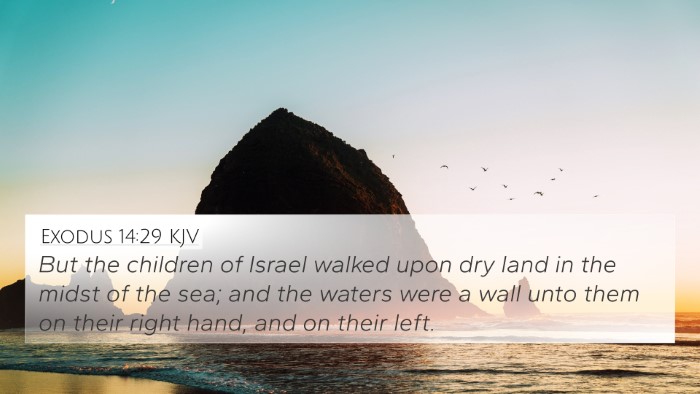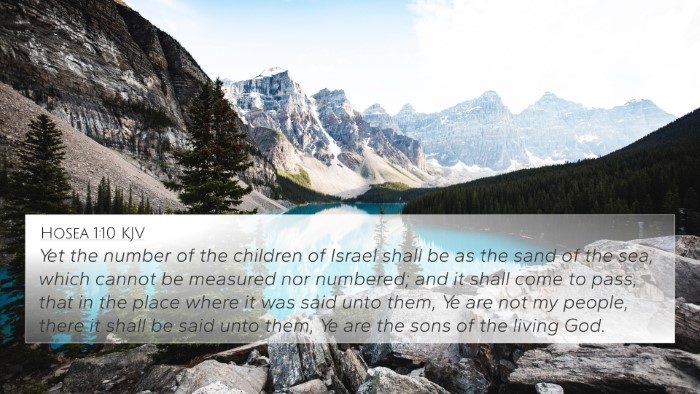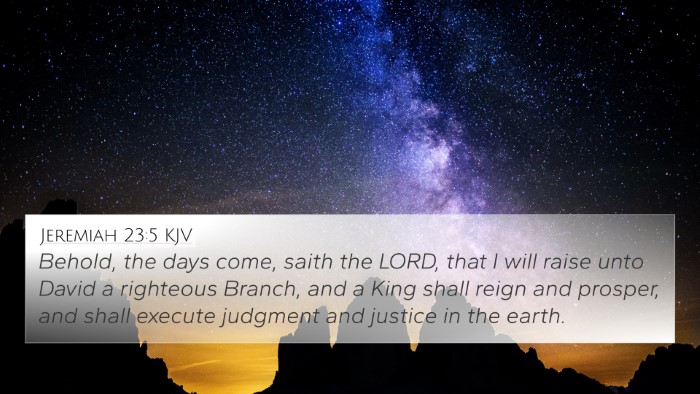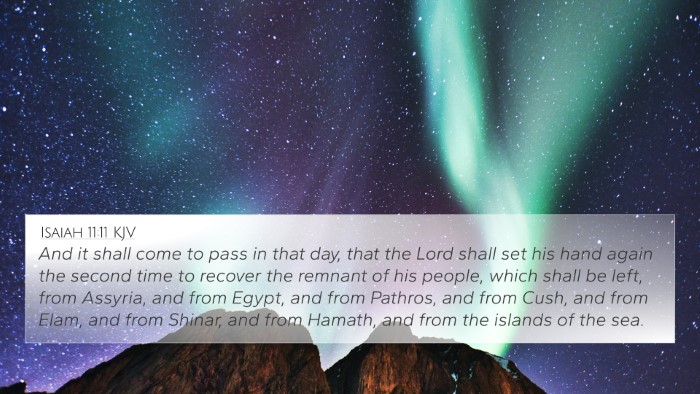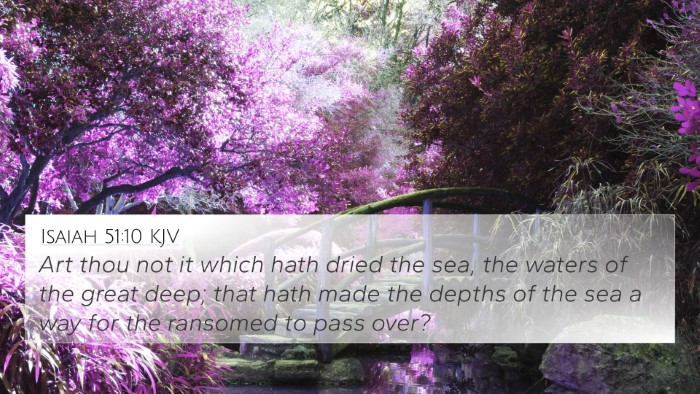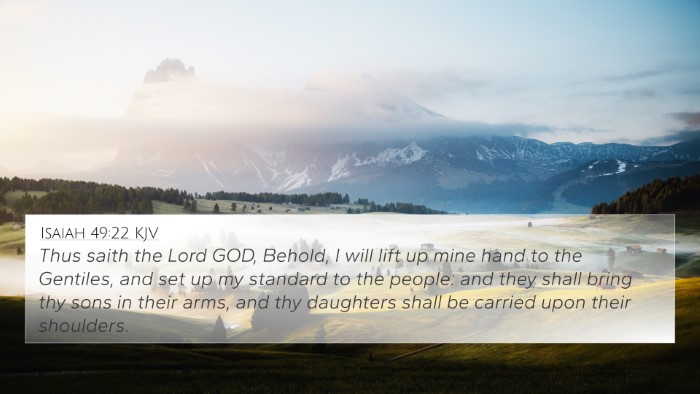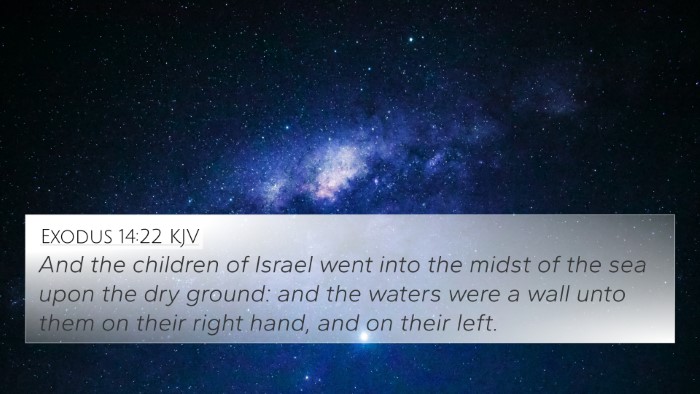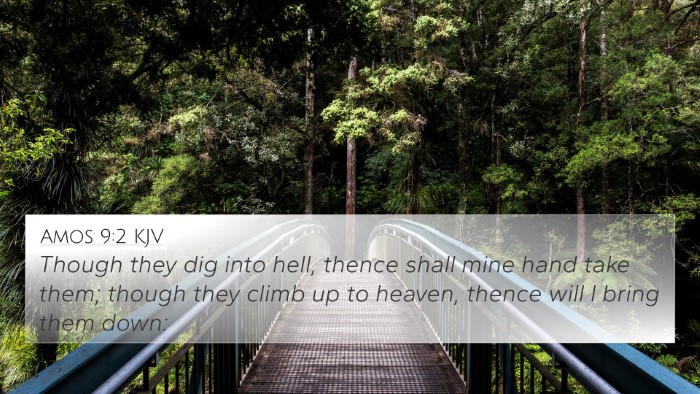Understanding Psalms 68:22
Psalms 68:22 states, "The Lord said, I will bring again from Bashan, I will bring my people again from the depths of the sea." This verse illustrates God's promise of deliverance, particularly from dire circumstances, emphasizing His power to rescue His people and bring them back to safety.
Verse Meaning
Public Domain Commentaries Insights:
- Matthew Henry: He expresses that the reference to Bashan signifies strength, as it was a region known for its lush pastures and formidable bulls. The sea represents chaos and danger. Thus, Henry views God as capable of conquering even the mightiest of foes and rescuing His people from perilous situations.
- Albert Barnes: Barnes comments on the metaphorical language used in this verse. He sees Bashan as a symbol of opposition and adversity. The mention of the sea suggests a return from exile or oppression. Barnes emphasizes God's omnipotence and willingness to restore His people, showcasing both His might and mercy.
- Adam Clarke: Clarke adds that the people might have suffered greatly before their rescue. He highlights that the Lord's proclamation implies a future action where His people would be gathered and brought to safety, symbolizing hope and restoration for those facing despair.
Thematic Connections
This verse encapsulates several important themes in scripture:
- Promise of Deliverance: Throughout the Bible, God promises to deliver His faithful from various trials. This verse reinforces the theme of God's faithfulness in rescuing His people.
- God's Power over Nature: The references to Bashan and the sea illustrate God's sovereignty over both the strong forces of nature and societal chaos. The narrative connects with other scriptures that speak of God's control over creation.
- Restoration: The divine assurance of bringing back His people resonates with the overarching Biblical narrative of redemption and restoration found throughout both Testaments.
Bible Verse Cross-References
For a deeper understanding, here are some relevant cross-references:
- Psalm 107:29: "He made the storm be still, and the waves of the sea were hushed." - God's authority over turbulent waters resonates with the themes of rescue present in Psalm 68:22.
- Isaiah 51:9: "Awake, awake, put on strength, O arm of the Lord; awake, as in the ancient days, in the generations of old." - Calls upon God to act with power, relating to deliverance from great adversity.
- Micah 7:14: "Feed thy people with thy rod, the flock of thine heritage, which dwell solitarily in the wood, in the midst of Carmel." - This ties back to God's shepherding actions in bringing His people back to safety.
- Jeremiah 23:3: "And I will gather the remnant of my flock out of all countries whither I have driven them." - A promise of restoration aligns closely with the reassurances found in Psalm 68:22.
- Matthew 10:31: "Fear ye not therefore, ye are of more value than many sparrows." - The theme of protection and care for His people resonates from the Old Testament into the New.
- Hebrews 13:5: "For he hath said, I will never leave thee, nor forsake thee." - This New Testament promise emphasizes God’s commitment, paralleling the assurance given in Psalms.
- Revelation 21:4: "And God shall wipe away all tears from their eyes; and there shall be no more death, neither sorrow, nor crying, neither shall there be any more pain." - This reflects the ultimate restoration and deliverance promised in Psalms.
Comparative Bible Verse Analysis
The connections between different Bible verses help illuminate the significance of Psalm 68:22:
- Linking Themes: The motif of God delivering His people runs throughout scripture from Exodus to Revelation; this verse serves as a poignant reminder of God's unwavering commitment.
- Inter-Biblical Dialogue: Analyzing these verses in conjunction helps readers to understand the continuity of God's actions and promises across different contexts and authors.
- Practical Applications: Understanding how these themes relate provides believers with comfort in their own lives, encouraging them to trust in God's ability to save from difficult circumstances.
Tools for Bible Cross-Referencing
Utilizing tools for a comprehensive Bible cross-reference system can greatly enhance your study:
- Bible Concordance: Essential for finding verses that relate to specific themes or topics.
- Cross-reference Bible Guide: A structured resource for understanding connections between verses.
- Bible cross-reference study methods: Different methodologies for applying cross-references in personal study or sermon preparation.
Conclusion
Psalms 68:22 offers profound insights into God's nature of rescue and restoration. By exploring its meaning through various commentaries and cross-referencing with other scriptures, we can appreciate the consistency and depth of God's promises throughout the Bible. Through this exploration, believers can find hope and encouragement in their own faith journeys.




